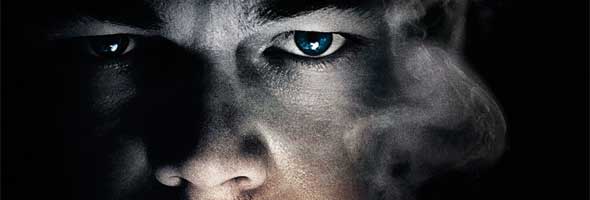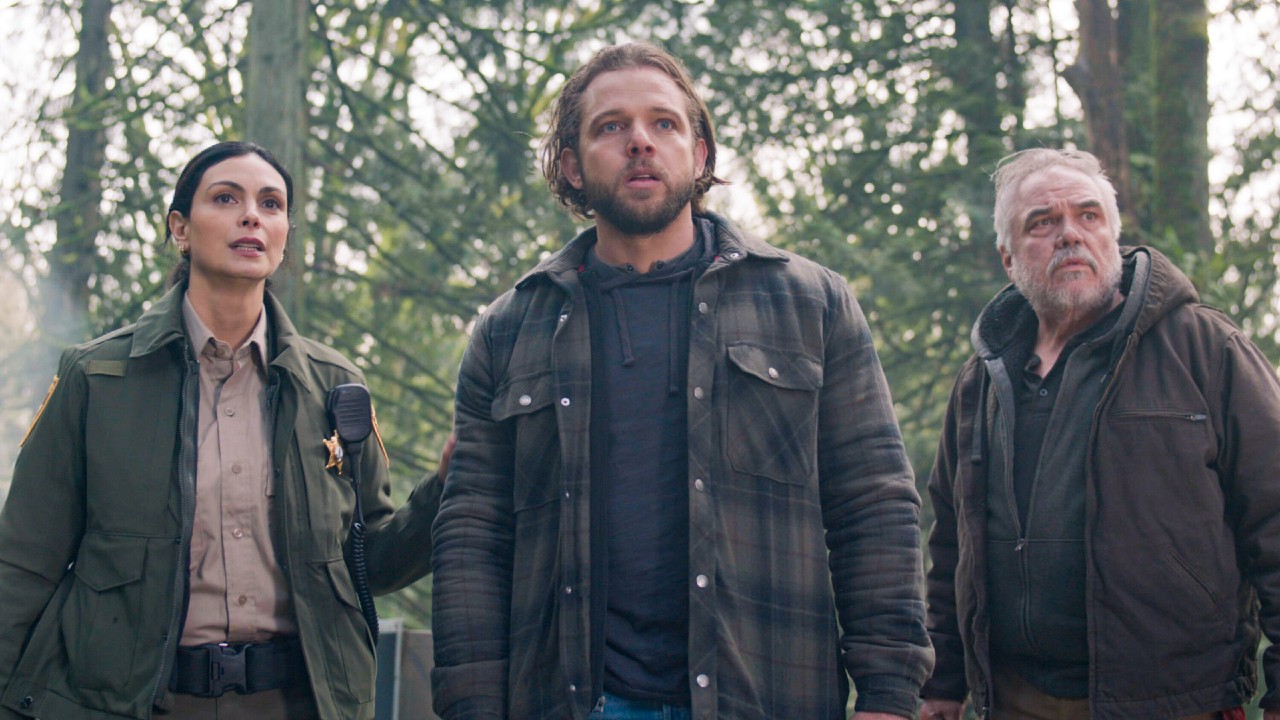If this is a first viewing: From the first ominous notes of the film score, Shutter Island invites you into its own nightmare. Grab your trench and a pack of smokes and become the silent partner, investigate the nooks and crannies, entrench yourself in the story. Gather goosebumps as bold as the film’s colors against the dulls and blacks of film noir, just as harrowing as in Schindler’s List, but maybe more chilling, because the audience has no way of understanding why certain colors must stand out. Move to Paragraph (1).
If this is a later viewing: Maybe more satisfying the second time around, watch the puzzle pieces fall together from the first moments of the film. It’s like re-watching The Usual Suspects. There’s certainly more to think about, although unlike Suspects, Shutter Island may not be quite as re-watchable after the second time. Look to the side characters, they’re more compelling than Leonardo DiCaprio as Teddy Daniels, who steals the spotlight the first time around. Pay close attention to Mark Ruffalo as Chuck Aule and Ted Levine as the Warden. They don’t disappoint. Move to Paragraph (1) (1) Teddy Daniels (Leonardo DiCaprio) and Chuck Aule (Mark Ruffalo) are U.S. Marshalls who have been commissioned to Shutter Island, an island that houses a mental asylum for the criminally insane. The two men have been sent to investigate the disappearance of Rachel Solando, a female prisoner who has recently escaped. When the two men, who have never worked together before, reach the island, men are already combing the bluffs for evidence of the missing woman. Things get weird almost immediately when the two men confront the heads of the facility -- Dr. Crawley (Ben Kingsley) and Dr. Naehring (Max von Sydow) -- who inform them that Rachel Solando had “evaporated, straight through the walls” of her concrete cell. Furthermore, the doctors won’t allow the two Marshalls anywhere near the patient’s medical records. As the evening weather forces the investigation to a halt, Daniels begins to wonder what the doctors are hiding. Move to Paragraph (2).
(2)What never seemed like a tight-knit story begins to unravel further. We find that Teddy dreams nightly about his dead wife, Dolores (Michelle Williams), while also being haunted by his experiences in World War II at the concentration camp Dachau. As doors open up into Teddy’s mind, they also open up to the island itself, as rumors are brought to the surface, as people reappear and disappear, as stories change to suit the moment, and the audience is asked again and again to dive into the murk with no idea when he or she will be able to breathe again. On Shutter Island, nothing is as it seems. If first-time viewer move to paragraph (4). If a repeat viewer move to paragraph (3).
(3) On Shutter Island, nothing is as it seems, especially upon second viewing. When the two Marshalls reach the island, Teddy has a brief conversation with Deputy Warden McPherson. Teddy looks around, noticing odd glances from the other on-site police and says, “You boys seem a little on edge, Mr. McPherson.” In a perfectly delivered line McPherson answers, “Right now we all are.” From this moment, innocuous lines become warning signs, double entendres, and satisfying aha! moments for the repeat viewer. Questions that almost seem to be plot holes become satisfying conclusions. The what’s up with Mark Ruffalo’s acting, why are the colors so vivid in memories of a fire and a concentration camp. Questions about the world now seem obvious. It’s so satisfying to hold these keys that it’s easy to see why Agatha Christie and Arthur Conan Doyle kept at it for so long. Move to Paragraph (5), unless you want to hear a rendition of how the music and imagery in this movie already made you feel.
(4) The first scene opens with music that will be prevalent throughout the film. It is conspicuous, offensive, it is music that is easy to hate but that can’t be kept out of your head. The music is like the imagery, is like the unexpectedly hazy dialogue and the dark rooms with corners too scary to hide in, where monsters, crazies, and ultimately answers lurk. Embrace the chaos and find the charm -- c’mon, it’ll be like selling your soul to learn to play the guitar. The charm of this movie, if it can be called charm, is that it capably takes over all of the senses. Goosebumps, pounding hearts, and maybe even covered ears are all part of the package, ladies and gentlemen, and sweet dreams are far away in the haze of the future. In return, you’ll receive not only a thrill, but an education in old-school filmmaking techniques and a glimpse at acting within acting. Move to Paragraph (5).
(5) Let me tell you a story: Once upon a time, the cast of Shutter Island had to brave continual bad weather and the setbacks that accompanied this weather. Satellites were consulted; plans were changed daily, and yet invariably plans would be spoiled. According to an interview with filmfolio.com, there was one day where DiCaprio was filming with Jackie Earle Haley, and he had to deliver the line, “You’ve got to let it go.” Scorsese talks about how you can see how strained DiCaprio is in that scene, how the whole conversation with Haley’s character comes across as perfectly acted when really it is perfectly realistic. Results come at a price. Move to Paragraph (6).
(6) Let me tell you another story: One of the main criticisms of this film I’ve heard is that it is too long. Plus the pacing is slow, which can make this film seem interminable if an audience isn’t prepared. I haven’t read the Dennis Lehane novel Shutter Island is based on, but from hearsay, writer Laeta Kalogridis adhered to it faithfully. Because she had to. The problem with adapting a complicated book is that if you go too far right you may end up dead at the base of a cliff. But if you go too far left, cut out too much, you’ll end up with a confusing film that may actually drive its audience crazy. Against all odds (including bad weather!) Shutter Island ends up balancing…almost evenly. Perhaps it’s better off that way. After all, what would the world of Shutter Island be like if it weren’t a little off balance? If a repeat viewer, move to paragraph (7).
Your Daily Blend of Entertainment News
(7) A good ending always keeps the reader guessing, but, in case you were wondering, those rats are real. No special features. I’ve heard the blu-ray disc has a couple of interviews, but the regular disc lacks everything but the standard awful-looking big budget previews.

